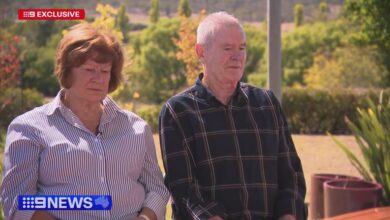BUDGET: confusion, disappointment for nurse leaders

Nursing leaders have expressed frustration, confusion and disappointment following last night’s federal Budget, which ANMF assistant federal secretary Annie Butler said included “nothing really beneficial” for health.
Speaking to Nursing Review this morning, Butler said the federation and other peak health bodies were still sifting through the budget papers after the government provided scant explanation of the various health measures it had taken.
“So while we are encouraged by the government’s announcement of a review of the MBS, a comprehensive review – and if that’s done properly it could be very beneficial – we do know that they are looking for $1.7 billion in efficiencies and we know that many preventative programs and many important programs that nurses and other professionals have been participating in are likely to be cut,” Butler said. “There is no restoration of the funds that were removed last year for hospital funding, so we still think that on top of the $50 billion that was removed last year, there could be up to another $2 billion cut from health.
“What we are concerned about with that is the increased workloads that are going to result for our members working in public hospitals and community health sectors.”
Overall, Butler said, there had been some good and bad elements in the papers, but “put together, basically, we are perplexed”.
Australian College of Mental Health Nurses chief executive Kim Ryan, who complained that the government had left her in the dark as well on the health budget, said her college’s greatest concern was the uncertain future of the mental health nurse incentives program.
“Unfortunately, there were no specific announcements regarding that program last night and indeed when I asked the question what was happening with the mental health nurse incentive program, the response was that all frontline services will be refunded,” she said. “If indeed the program has received ongoing funding, we are delighted with that and are looking forward to working very closely with government as to what we can do to make enhancements to the mental health nurse incentives program."
“I am hoping to find out further information about that today."
Ryan said there was also lingering confusion regarding the future of nursing scholarship programs – including potential consolidations with other scholarships – which, she said, was frustrating given ongoing workforce shortages.
“Obviously, nurses require scholarships to get their education and we are yet to find out what that means and whether that means there are allied health scholarships and nursing scholarships,” she said. “Are they all going to be consolidated together? We don’t really know.”
Australian Healthcare and Hospitals Association chief executive Alison Verhoeven said that whilst the budget hinted at a government that was willing to commit to a long-term health policy, she remained concerned by “a distinct lack of information or long-term planning evidence for many of the important program areas in health”.
“We call on the government to move away from the haphazard approach to health policy, with short-term funding measures and announcements of reviews, and take some important steps to move health reform forward,” she said. “One good thing the government has done is instigating a long-overdue review of the Medicare Benefits Schedule. But the continued failure to honour hospital funding arrangements that were built on bipartisan agreements of previous governments is really disappointing.”
Email: [email protected]





